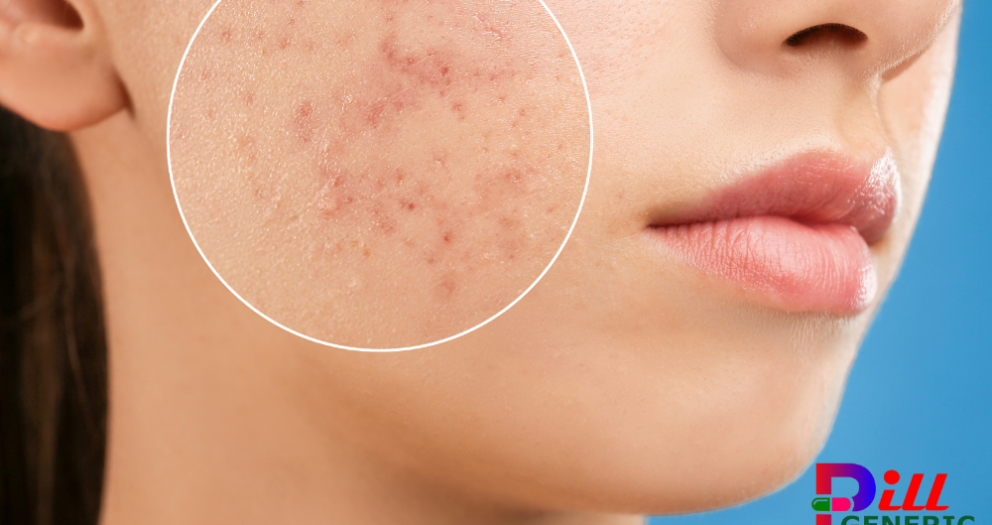In recent years, the spotlight on gut health has illuminated the importance of probiotics. These beneficial bacteria play a crucial role in maintaining a healthy digestive system and overall well-being.
For women, the benefits of incorporating probiotics into their routine extend beyond digestion, impacting various aspects of health.
In this blog post, we will delve into the how-tos, benefits, potential side effects, and answer frequently asked questions surrounding the use of probiotics for women.
How to Use:
- Choose the Right Probiotic Strain: Not all probiotics are created equal. Different strains offer various benefits. Lactobacillus and Bifidobacterium are common strains beneficial for women’s health, promoting vaginal and urinary tract health.
- Consider CFUs (Colony Forming Units): The potency of probiotics is measured in CFUs. For general health, a supplement with 1-10 billion CFUs is adequate. However, specific conditions may require higher concentrations.
- Include Probiotic-Rich Foods: Fermented foods like yogurt, kefir, sauerkraut, and kimchi are natural sources of probiotics. Including these in your diet can contribute to a healthy balance of gut bacteria.
Benefits:
- Improved Digestive Health: Probiotics aid in maintaining a balanced gut microbiome, alleviating digestive issues like bloating, constipation, and irritable bowel syndrome (IBS).
- Enhanced Vaginal Health: Certain probiotic strains, such as Lactobacillus, can help prevent and alleviate vaginal infections by maintaining a healthy pH balance.
- Boosted Immune System: A significant portion of the immune system resides in the gut. Probiotics support immune function, helping the body ward off infections.
- Mood and Mental Health: Emerging research suggests a connection between gut health and mental well-being. Probiotics may play a role in managing stress, anxiety, and depression.
Side Effects:
- Mild Digestive Discomfort: Some individuals may experience initial bloating or gas when starting probiotics. This usually subsides as the body adjusts.
- Risk for Immunocompromised Individuals: People with weakened immune systems should consult a healthcare professional before using probiotics, as they may pose a risk in certain situations.
FAQs:
- Can I take probiotics during pregnancy? Yes, many pregnant women use probiotics to support their digestive and immune health. However, it’s crucial to consult with a healthcare provider before starting any new supplement during pregnancy.
- Are all probiotics dairy-based? No, there are dairy-free probiotic options available, making them suitable for individuals with lactose intolerance or those following a dairy-free diet.
- Can probiotics help with weight loss? While not a direct weight loss solution, maintaining a healthy gut can contribute to overall well-being, potentially influencing weight management.
- Should I take probiotics with or without food? It varies. Some probiotics are more effective when taken with food, while others may be better on an empty stomach. Follow the instructions on the product or consult with a healthcare professional.
- How long does it take to see results from probiotics? Results vary among individuals. Some may experience improvements in a few days, while others may take weeks. Consistency is key.
- Can probiotics be taken with antibiotics? Yes, but it’s essential to space them out. Take probiotics a few hours apart from antibiotics to avoid interference with antibiotic effectiveness.
- Are there any age restrictions for taking probiotics? Probiotics are generally safe for all ages, but specific products may have age recommendations. Consult with a pediatrician for children.
- Do probiotics expire? Yes, check the expiration date on the product. Expired probiotics may not be as effective.
- Can I overdose on probiotics? While uncommon, excessive consumption of probiotics may lead to digestive issues. Follow recommended dosage guidelines.
- Are there natural food sources of probiotics? Yes, fermented foods like yogurt, kefir, sauerkraut, kimchi, and miso are rich in probiotics.
Fact Box:
- Probiotics are live microorganisms that confer health benefits when consumed in adequate amounts.
- The gut microbiome consists of trillions of microorganisms, including bacteria, viruses, and fungi.
- Probiotics support the production of short-chain fatty acids, essential for gut health.
- Stress, poor diet, and antibiotics can disrupt the balance of gut bacteria, making probiotics beneficial in restoring equilibrium.
Maintaining Balance: A Closer Look at Probiotics for Women
As we delve further into the world of probiotics for women, it’s essential to understand the intricate relationship between these beneficial microorganisms and the body’s intricate systems.
The Gut-Brain Connection:
Recent studies have shed light on the gut-brain axis, revealing a bidirectional communication system between the gut and the brain. Probiotics, by nurturing a healthy gut microbiome, may influence this connection. Emerging evidence suggests that a balanced gut contributes to cognitive function, mood regulation, and may even play a role in mitigating the effects of stress.
Navigating Women’s Health:
For women, the benefits of probiotics extend beyond the gut. Specific strains, such as Lactobacillus reuteri and Lactobacillus rhamnosus, have shown promise in addressing common women’s health concerns.
- Vaginal Health: Lactobacilli, the dominant bacteria in a healthy vagina, produce lactic acid, maintaining an acidic environment that prevents the overgrowth of harmful bacteria. Probiotics can enhance this natural defense mechanism, reducing the risk of infections.
- Urinary Tract Health: Certain probiotics, particularly those in the Lactobacillus genus, may help prevent recurrent urinary tract infections (UTIs) by promoting a healthy balance of bacteria in the urinary tract.
Probiotics and Immune Support:
A robust immune system is crucial for overall health, and the gut is a central player in immune function.
Probiotics stimulate the production of antibodies, enhance immune cell activity, and contribute to the maintenance of a healthy gut lining. For women, this means potential support in warding off infections and illnesses.
Unpacking Potential Side Effects:
While probiotics are generally safe for most individuals, it’s essential to be mindful of potential side effects.
Mild digestive discomfort, such as bloating or gas, may occur initially, but this typically resolves as the body adjusts. Individuals with compromised immune systems should exercise caution, as there is a theoretical risk of infection.
Probiotics Beyond Supplements:
While supplements are a popular choice, incorporating probiotic-rich foods into your diet can offer a more holistic approach to gut health. Yogurt, kefir, sauerkraut, kimchi, and miso are not only delicious but also provide a diverse range of probiotic strains.
Seeking Professional Guidance:
Before embarking on a probiotic regimen, especially if you have pre-existing health conditions or are pregnant, consulting with a healthcare professional is crucial.
They can provide personalized advice based on your unique health profile, ensuring that probiotics complement your overall wellness plan.







I never realized the impact probiotics could have on women’s well-being until I read this. It’s amazing how something as simple as gut health can affect so many aspects of our lives.
I love that this article focuses on natural solutions for women’s health. It’s so important to consider holistic approaches like probiotics alongside traditional medicine.
It would be interesting to learn more about the science behind probiotics and how they actually work in the body. Maybe a follow-up article could dive deeper into the mechanisms behind their benefits?
This article does a great job of highlighting the importance of gut health for overall wellness. It’s something that often gets overlooked, but I’m realizing just how crucial it is to prioritize.
This article has me wondering if probiotics could help with specific women’s health issues, like hormonal imbalances or urinary tract infections. It would be interesting to see more research on these topics.